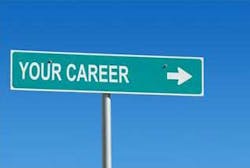Dental hygiene of the future: Are you ready?
What do you think the future of dental hygiene will be? Working for a solo dentist in private practice? Owning your own business? Going back to our roots, public health? You will get many varied answers from different people. The general agreement is that the future will be more uncertain, complex, and different from what we have viewed as “traditional” dental hygiene.
Many surmise that there will be opportunities for more and varied settings, in addition to the roles with which we are familiar. However, those settings will, no doubt, come with new responsibilities. The economy and technology will, to some degree, dictate some of the changes. We already see changes in clinical dental hygiene, with fewer offices employing dental hygienists and more dentists practicing dental hygiene! The traditional, solo dental practice will need to make some changes to stay viable and sustain a competitive edge in the health care market. We already see more group practices, with practitioners pooling resources to stay afloat. Dental tourism has taken a toll on U.S. dental practices, as well as dental laboratory services being sent abroad to countries where labor is less expensive. Customer (patient) satisfaction is critical, as we are now dealing with more astute consumers of dental hygiene and dental care, thanks to the Internet! Technology developments have changed every facet of our life, from businesses, to healthcare delivery, to how we keep our calendars. Advances in technology, and new products and materials, will require us to have advanced business acumen, and more education and training. Doing things “the way we always do them” is no longer an acceptable business model. Honing “hard and soft skills” will be vital as we navigate the murky waters of our future.
As positions and jobs become more competitive, there will be a greater focus on advanced education. Corporations and educational institutions view a baccalaureate degree as entry level. Dental hygiene is slow to implement this, but it has been a policy of the American Dental Hygienists’ Association (ADHA) for many years. Why? Is it because dental hygienists with 2-year degrees are inferior to those with advanced degrees? Of course not! As the world and demographics change, we need more knowledge to appropriately treat more complex medical conditions, maintain implants, stay up-to-date with new product and treatment research, and there is simply not enough time in a 2-year program to prepare the dental hygienist of the future. As well, a 2-year program is really almost 3 years, so articulating to a degree is not that difficult.
Practices and other employment venues will no longer settle for average or below average in any area (if they ever did!), as the economic atmosphere is too formidable and practices must be productive. The pool of employees is larger, too. An example of innovation is a dental hygienist as co-owner of a practice, sharing responsibilities, patients, and finances. Multitasking is a necessary skill. If on a salary, a dental hygienist should confirm appointments, help seek new patients to the practice, help the dental assistant, explain treatment plans, and do more to make themselves valuable to the office. Acceptance of treatment plans, the bread and butter of any office, is increased if the patient sees the value of the treatment, if it is communicated as an investment rather than expenditure, and if it is viewed in the context of prevention and wellness. The competition is tough, so an entrepreneurial dental hygienist will find ways to increase his/her value to the practice or other work setting. We must be leaders in our chosen work setting, and lead by example. Simplify your vision for success, and use the technique of career mapping. Be innovative, and increase your communication skills. Commit to excellence, take responsibility for your actions, and constantly measure your progress.
If something is not working, change it! Change is the only constant in life. For some dental hygienists, the future holds great promise and exciting prospects. For others, changes are confusing and uncomfortable. “Never be a prisoner of your past. Be the architect of your future.”
Sincerely,
Maria Perno Goldie, RDH, MS
To read previous RDH eVillage FOCUS introductions by Maria Perno Goldie, go to introductions.
To read more about hygiene in the future, click here.






